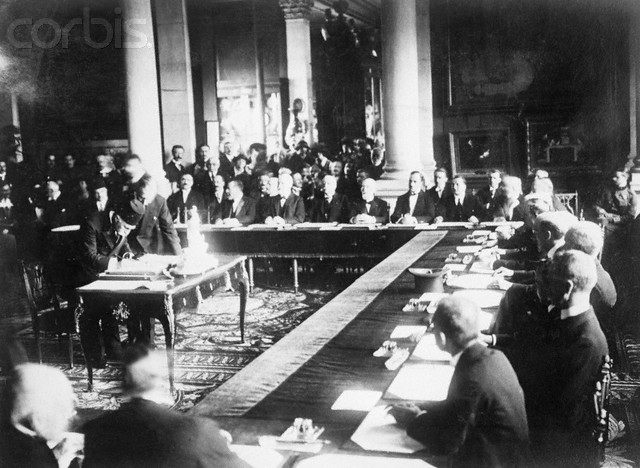A century has passed since the signing of the Treaty of Sèvres on August 10, 1920, in the town of the same name in France. The treaty sought the dissolution of the Ottoman Empire and recognized the smaller nations in the empire as well as relegated the empire’s influence from the Arab regions.
The treaty had stemmed directly from the surrender of Germany on November 11, 1918. On June 28, 1919, Germany and the Allied Nations (including Britain, France, Italy and Russia) signed the Treaty of Versailles, formally ending the war.
As an ally of Germany during World War I, the Ottoman Empire was then targeted by the Allies. The Allies, in addition to punishing the Ottoman authorities, believed in a new type of existence, one in which justice would prevail. In this case, justice applied to the smaller nationalities of Armenians, Kurds, Greeks and Arabs in the Ottoman Empire.
The official name of the treaty, The Treaty of Peace between the Allied and Associated Powers and Turkey, pitted the British Empire, France, Italy and Japan, with their associated nations, Armenia, Belgium, Greece, the Hedjaz, Poland, Portugal, Rumania, the Serb-Croat-Slovene State and Czecho-Slovakia.”
The pact also provided for an independent Armenia, for an autonomous Kurdistan, and for a Greek presence in eastern Thrace and on the Anatolian west coast, as well as Greek control over the Aegean islands commanding the Dardanelles.
According to the treaty:








